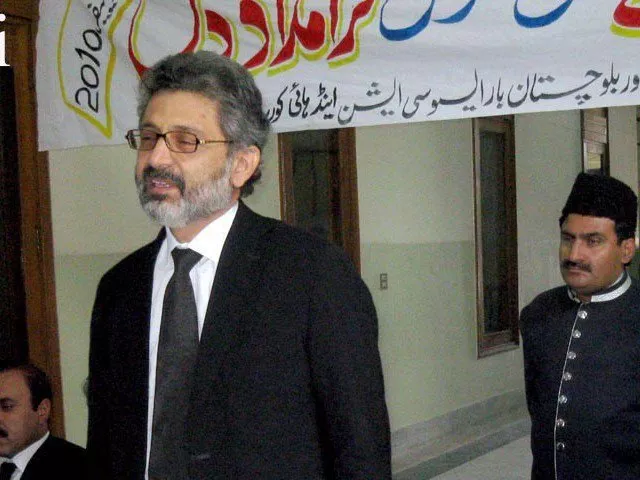CJP urged to discontinue congregational prayers in SC premises
Justice Isa argues that the virus has come knocking and we must not embrace or let it in
ISLAMABAD: Supreme Court judge Justice Qazi Faez Isa has urged Chief Justice of Pakistan Gulzar Ahmed to discontinue congregational prayers in the apex court's premises till the prevalence of the novel coronavirus pandemic.Justice Isa had previously written to the CJP and requested the same, and was asked by Justice Gulzar to back his proposal with a religious argument.
In his second letter to the CJP, Justice Isa says he has yet not read any contrary view based on Quranic references which stated that irrespective of the danger to life, prayers in mosques should continue.
He further stated that the matter is best addressed on the basis of the opinion of experts and doctors.
“As far as I know, this community is also unanimous in stating that people should not congregate and should not attend places of worship,” he added.
Arguing his case, Justice Isa explained that experts have said that the virus spreads from one person to another due to proximity.
“In mosques during prayer, we often touch strangers and do repeatedly touch our forehead to the floor, which many before have touched and breathed upon, and many after will do so,” he said.
Citing Quranic verses from Surah Al-Ma’idah, the superior judge stated that Islam obligates to keeping everyone safe.
“Experts say that physical distancing has proven to keep people safe, avoid the spread of the virus and defeats it… experts inform us that the virus may survive on clothing and on all surfaces for days,” Justice Isa said adding that one is obligated to keep oneself safe too.
Justice Isa argued that though Muslims are commanded to worship Allah and to establish prayer and to give zakat, but they are exempted in certain situations.
He added that one must not stop praying during the pandemic but only stop congregational prayers in mosques to minimize the danger.
“Congregating at a time when the virus is prevalent exposes oneself to infection, which one may take home and spread further afield; the resultant sickness, for which there is still no cure, and possible death,” he said adding that such a situation may be categorised as one of extreme hardship and danger.
The superior judge concluded his letter by saying that it was our religious duty to keep everyone and oneself safe.
“The virus has come knocking, we must not embrace or let it in,” he concluded seeking forgiveness if he misunderstood any of the Quranic verses.
Justice Isa also stated that he is preparing an Urdu translation in case the CJP wanted to share it with prayer leaders in the Supreme Court premises.


COMMENTS
Comments are moderated and generally will be posted if they are on-topic and not abusive.
For more information, please see our Comments FAQ